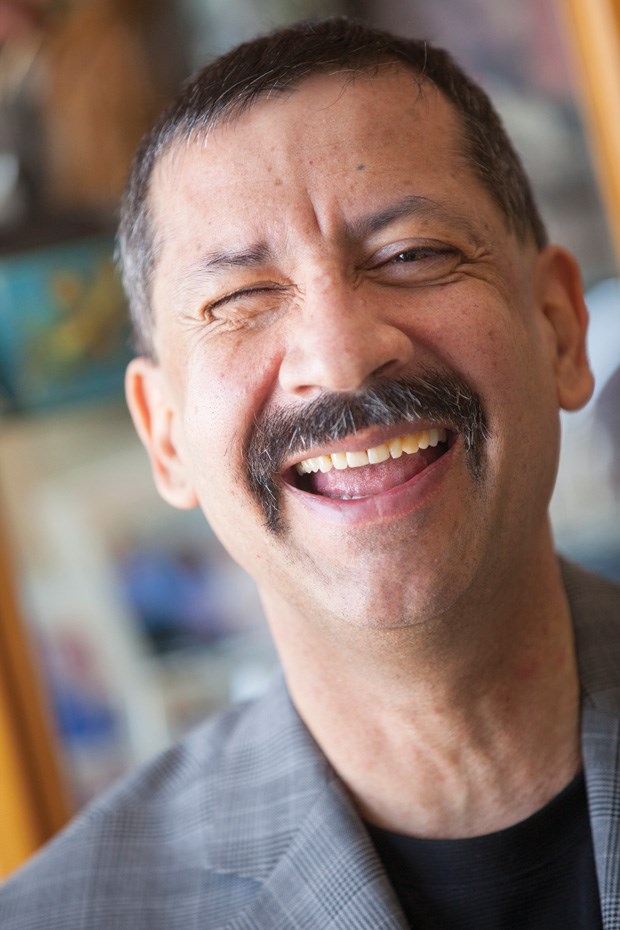Sponsored by the Canadian National Institute for the Blind
Nothing can keep Saskatoon resident Ricardo Pino-Robles from enjoying life these days. Depending on the season, cross-country skiing and bowling are among the key events on his social calendar.
“Participating in these programs has made a big difference to me,” says the 56-year-old, who is legally blind. “A guide collects me from home and takes me out. I am also going to start running and intend to participate in a competition for blind runners.”
Originally from Chile, Pino-Robles was born with degenerative myopia. Also known as malignant or pathological myopia, the disease is characterized by elongation and deformation of the eye, creating stress on the retina, which can become damaged.
The disease is a significant cause of blindness around the world, particularly among people with Asian, Semitic and some European backgrounds. It’s also hereditary and manifests itself early in life, just like it did for Pino-Robles.
“When I was a child, I wore very thick glasses,” says Pino-Robles, whose siblings have all now been diagnosed with the disease as well. “My oldest sister is going blind but doesn’t want to recognize it because she still has some vision. She doesn’t want to get help and won’t even use a magnifying glass.”
Pino-Robles, who worked as a journalist in South America for a number of years, says he had a similar attitude as a young adult. But unlike his sister, he did seek help, knowing that regular eye exams could help slow or prevent permanent vision loss caused by the disease.
"Vigilance is very important, particularly for people who have a genetic condition," he says. "All of us go for eye examinations with an optometrist every year. For me right now it is very, very important because I am at risk of a massive retina detachment in the other eye."
The good news is, treatment appears to have delayed the progress of Pino-Roble’s condition and he’s still able to distinguish some shapes and see some light.
“In 1999, I had surgery to have a lens implanted and had a cataract removed, so I had some vision before I started going blind again,” he says.
Knowing it would be difficult to continue his career in journalism as his eye disease progressed, he began working towards a degree in linguistics at the University of Saskatchewan before he lost his sight completely.
“I went blind first but I did finish my degree and starting working as a translator until I couldn’t read the papers any longer.”
While he has managed to build up his independence and leads an active life today, that wasn’t always the case. For seven years before joining bowling and skiing events held by CNIB (Canadian National Institute for the Blind), Pino-Robles says he generally stayed in the house.
“I didn’t feel able to go anywhere. I would get lost or crash into things. But now all kinds of doors have been opened to me and I feel much happier about the future.”
Since being declared legally blind last fall, he now uses a white cane and a GPS to travel on his own more safely, and through CNIB he has assistive equipment like JAWS (Job Access with Speech), a screen reading program that reads the text on his computer screen aloud.
“I know that it will take time, but it is something to work for and I eventually hope to work in translation again on electronic material,” he says.
Meanwhile, he says the most positive aspects of his life are the activities organized by CNIB. In addition to the sports he plays through CNIB, the organization’s specialists are teaching him to play cribbage using braille cards and he’s also starting to listen to audio books he receives through the CNIB Library, Canada’s largest source of audio and braille materials for people who are unable to read print.
“These are all things that I never thought I could do or didn’t know how to access,” he says. “CNIB has opened so many doors for me and has made me feel so much more optimistic.”
May is Vision Health Month. Learn more at eyesareforlife.ca.



